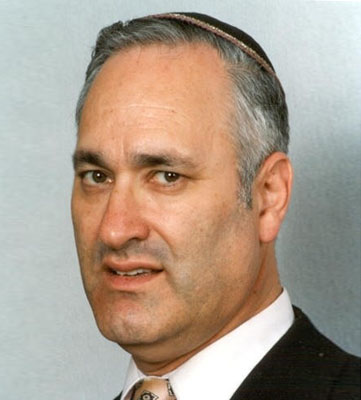By Rabbi Doniel Z. Kramer, Ph.D.
This week’s Torah portion (Numbers 4:21-7:89), which almost always follows the Festival of Shavuot, is called Naso—“to lift up” (Numbers 4:22), because it begins with various responsibilities placed upon the family of Levites, who are to be “lifted up” to perform specific sacerdotal duties.
Our Rabbis derive another lesson from the juxtaposition of this Torah portion to Shavuot. Shavuot represents the climax of what would be the highest Jewish experience—to hear the words of the Ten Commandments given directly by God. Thereafter, every Jew who reaffirms an allegiance to the Torah and its commandments and ethical teachings, should proudly be “lifting up their heads” in thankfulness for this special relationship with the Divine. We should be proud to be the “chosen people”—chosen to sanctify our lives through the acceptance and observance of the Torah.
Naso is the longest single Torah portion, with 176 verses, so let‘s jump from this reference in the beginning of the portion to the concluding section of Naso, Numbers 7:12 to 7:88. The latter part of Naso consists of the recounting the special offerings brought by each of the leaders of the 12 Tribes of Israel, each princely leader bringing his offering on a different day, so that the 12 leaders of the Israelites brought their offerings during the first 12 days of Nissan, when the Holy Tabernacle, wherein was the Ark with the Ten Commandments, was dedicated.
In paragraphs of six verses each, the Torah tells us of the offerings of each of the 12 tribal leaders, for a total of 72 verses. The portion ends with an additional five verses that tally the totals of these 12 gifts. What is amazing is that each prince brought exactly the same sacrifices and offerings. Why, the Rabbis ask, did the Torah have to repeat these offerings every day? It could have mentioned what the prince of Day One brought, and then tell us that each subsequent offering was exactly the same. Why the need to repeat each day’s offerings and add so many verses to the Torah reading?
One explanation is that too often, people want to show how great they are, usually at the expense of someone else. The later princes could have added something more spectacular to their gifts to make them stand out. That’s not the Torah way. We don’t lift ourselves up by stepping on others! What was a perfect gift for the first prince was just as perfect for the 12th one.
Another explanation teaches us to value the gifts and experience and worth of every Jew. What the 12th prince brought was just as special and important as was the first day’s gifts. There wasn’t the “same old, same old” attitude. Each gift deserved its full appreciation.
A Chassidic rabbi with many children was once asked in an interview how many children he actually had. He replied, “One!” Incredulous, the questioner persisted, and the rabbi clarified: “I was correct when I told you that I only have “one”: I have one Shmuel, one Leah, one Sarah.….” How often do we read of conflicts in the home, school, the workplace—when parents, teachers and bosses play favorites. That’s not the Torah way. We don’t only lift up some while putting down others!
Chaplains know this. Although there may be more recognition when conducting a service or speaking at a communal event, the real, invaluable work of a chaplain is with the individual service member or veteran, on a one-to-one basis.
O God, please help us recognize the infinite intrinsic value of every human being whom we meet on life’s unpredictable journey—Amen.
Shabbat shalom umevorach!
 Rabbi Doniel Z. Kramer, Ph.D., retired as a Lt. Colonel after 30 years as an Army Reserve Chaplain. He is in his 43rd year as a part-time chaplain in the Hudson Valley VA Healthcare System. He is a member of the Orthodox Rabbinical Council of America delegation to the JWB Jewish Chaplains Council®.
Rabbi Doniel Z. Kramer, Ph.D., retired as a Lt. Colonel after 30 years as an Army Reserve Chaplain. He is in his 43rd year as a part-time chaplain in the Hudson Valley VA Healthcare System. He is a member of the Orthodox Rabbinical Council of America delegation to the JWB Jewish Chaplains Council®.